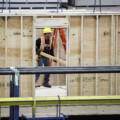The question is no longer whether Canada should be a global energy leader—our newly-elected prime minister has set the ambition for us to be an energy superpower—it’s will we seize the moment and take the actions to become one.
It’s important to remind ourselves that Canada is one of the most resource-rich countries on the planet. Holding the third-largest oil and fifth-largest natural gas reserves in the world, as well as the world’s largest deposits of uranium (and potash too, but that’s not expressly energy), abundant minerals, and more. These resources have fuelled our economy, created hundreds of thousands of high-paying jobs, and generated billions in government revenues.
However, recent years have presented major challenges. We saw federal policy that was reflective of ensuring Canada did not become an energy superpower. Canada’s natural resources faced layer upon layer of policy that, due to unrealistic assumptions, technologies, and capital markets, would ensure our resources stayed in the ground. And despite global leaders coming to our shores asking for our energy, and a world that could benefit from our lower emitting sources, Canada turned them all away.
Complex regulatory processes and policy uncertainty have hindered both investment and the development of crucial infrastructure needed to connect Canadian resources to global markets, irrespective of the positive effect of the Trans Mountain pipeline. This has resulted in forgone economic benefits, including jobs, investment, and government revenues, and limited our ability to contribute fully to global energy security and environmental progress by displacing higher-emitting energy sources elsewhere.
Nonetheless, that is our past. Focusing solely on past hurdles overlooks the significant opportunity before us and the growing consensus—nearly eight in 10 Canadians now support projects like nation-building pipelines—that realizing our energy potential is vital. The path forward involves embracing a clear-eyed view of global energy realities and implementing simple, pragmatic, predictable policies that foster investment, innovation, and collaboration.
Reconciling this grand ambition—getting our energy sector to reach its full potential, while also decarbonizing—will be one of the central challenges for this government. The approach and policy framework of the past 10 years won’t work. Canada needs something more reasonable, technologically feasible, and affordable. It is achievable, but it will require world-class policy and a grand bargain between government, industry, and citizens.
Here’s what Canada’s newly elected government can do to reach that ambition of being an energy superpower:
1. Champion Canadian industry
First, champion Canada’s homegrown industry and signal a desire for its growth. A clear signal from government that Canada will be a leading developer and exporter of its energy resources will be vital for restoring confidence and capital. Canada must take a global view towards emissions and be willing to increase production domestically to offset emissions globally. That is a key view we can take and a role we can play.
Additionally, Canada must facilitate, not frustrate, the development of necessary infrastructure, such as pipelines and LNG export facilities, and reconsider policies like the West Coast tanker moratorium that arbitrarily limit market access, and the prosperity of coastal communities.
2. Keep it simple
Second, simplify climate policy and ensure it considers competitiveness. Effective climate policy is important to this vision, but it must be designed for competitiveness and global impact. The current pancaking of regulations—federal carbon pricing, provincial systems, Clean Electricity Regulations, greenwashing regulations, and especially discriminatory oil and gas emissions cap—creates complexity and uncertainty that deters the very investments needed for decarbonization. Most of these policies need to be drastically rewritten or withdrawn.
Crucially, policy must recognize the global nature of emissions. We should both take a global view of emissions and significantly enhance focus on decarbonization technologies like carbon capture, utilization, and storage (CCUS) so that Canada can grow production and exports.
3. Prioritize Indigenous participation
Third, enhance Indigenous participation in project developments and reviews. Meaningful Indigenous participation is not just a constitutional duty but an economic imperative for successful resource development. Genuine partnership requires moving beyond box-ticking consultation and cash outlays to enabling real equity partnership and economic opportunity. Streamlining the currently fragmented federal consultation processes into a more coordinated approach is a necessary step towards efficiency and respect.
Equally important is facilitating Indigenous access to capital, including through national loan guarantee programs, and supporting capacity-building initiatives to ensure communities can fully participate in and benefit from major projects. Shared prosperity is the foundation of durable partnerships.
4. Fix approval processes
Finally, and much has already been written about this (including by me), we must fix Canada’s major project approval processes. The challenge is fundamental: a CEO must be able to stand before their board and confidently answer two basic questions: “How much will it cost, and how long will it take?” With our current system, these CEOs—ready to deploy capital—tell me they cannot answer those questions. A reformed system, whether through significant amendment or replacement, must prioritize clarity, timeliness, and certainty.
Federal reviews should focus squarely on areas of federal jurisdiction, operate on a “one project, one review” principle recognizing the primacy of provincial jurisdiction where appropriate, and ensure that decisions are ultimately made by independent regulators based on clear criteria, not political interference. Establishing that responsibly developed energy and infrastructure projects are fundamentally in the national interest should be an explicit principle of the review process.
Canada has all the ingredients necessary to be an energy superpower—providing secure, reliable, and increasingly lower-carbon energy to the world. Realizing this potential requires a shift towards pragmatic, predictable, and market-oriented policies that encourage investment, foster innovation, and build partnerships. It requires a commitment to coherent governance that aligns economic, environmental, and social objectives. The opportunity is immense; seizing it requires clear vision and decisive action.
This article is made possible by the Business Council of Alberta and readers like you. Donate today.









